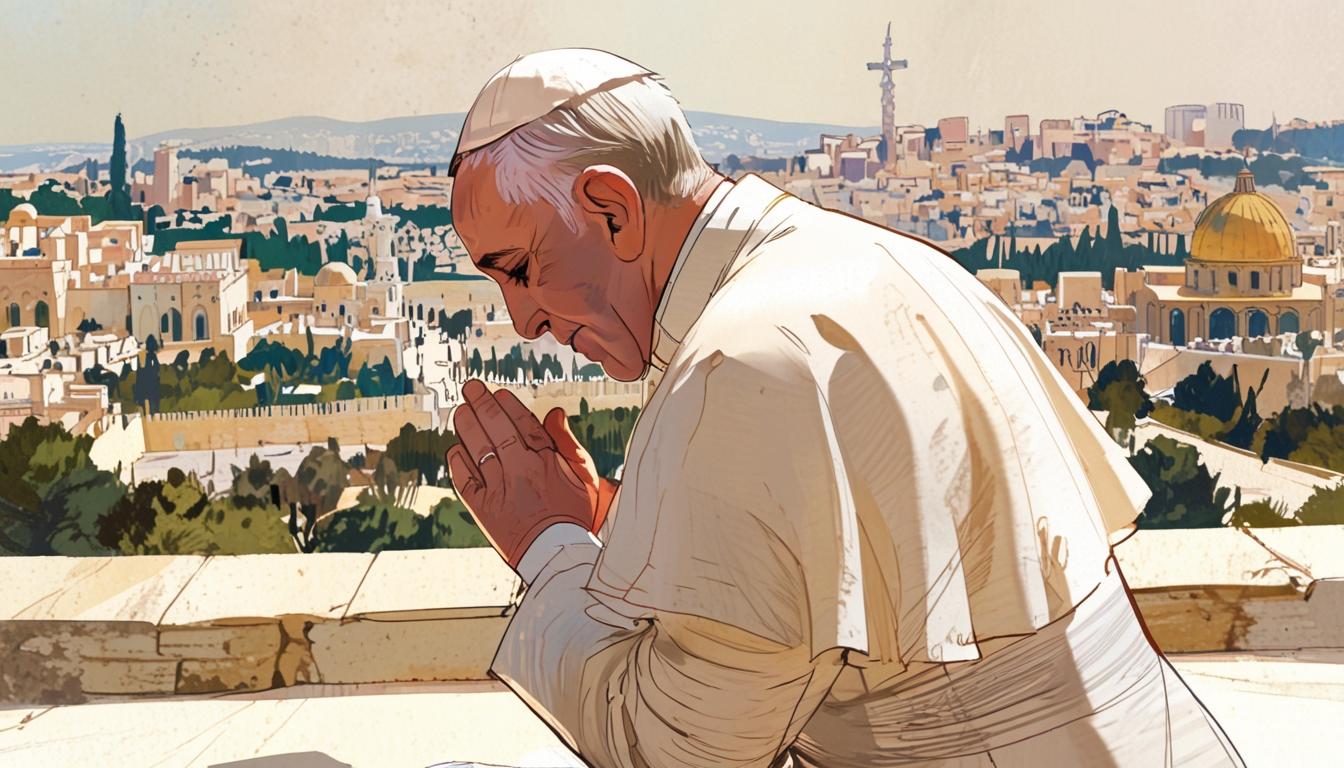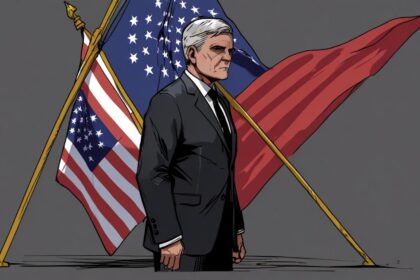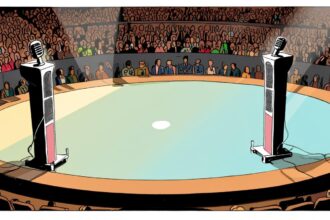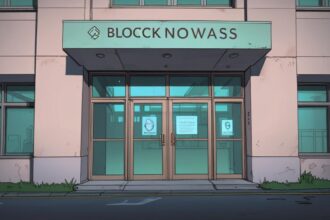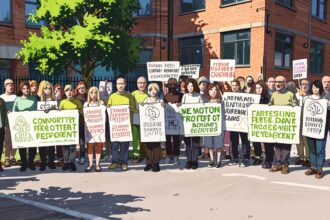Following Pope Francis’ death, Israel issued limited official condolences and deleted a Foreign Ministry tribute, reflecting heightened diplomatic tensions stirred by the pope’s criticism of Israel’s actions in Gaza amid a fraught history between the two states.
Hours after the announcement of Pope Francis’ death, Israel’s Foreign Ministry posted a brief message on the social media platform X, stating: “Rest in peace, Pope Francis. May his memory be a blessing.” However, the post was deleted several hours later without any explanation offered. The Independent is reporting that this deletion has been interpreted as indicative of the tensions that have developed between Israel and the Vatican, largely stemming from Pope Francis’ frequent criticisms of Israel’s conduct during the recent conflict in Gaza. The Foreign Ministry declined to provide a comment on the reasons behind the post’s removal.
Prime Minister Benjamin Netanyahu, who typically issues prompt statements upon the passing of significant international figures, has remained silent on the pope’s death, as has Foreign Minister Gideon Saar. The only official Israeli condolences came from President Isaac Herzog, who occupies a largely ceremonial position. Herzog characterised Francis as “a man of deep faith and boundless compassion.”
The diplomatic relationship between Israel and the Vatican experienced considerable warming during much of Francis’ papacy, highlighted by the pope’s visit to the Holy Land in 2014. At that time, Francis met with Netanyahu, then prime minister, and engaged in peace efforts that involved prominent Israeli and Palestinian figures. The visit was emblematic of the improving ties, built on the Vatican’s formal establishment of diplomatic relations with Israel in 1993 and significant shifts in the Church’s stance on Judaism since the 1960s.
However, this progress was disrupted by the outbreak of war in Gaza following Hamas’ deadly attack on southern Israel on 7 October 2023. Although Pope Francis expressed sympathy for Israeli victims and hostages, he described Israel’s subsequent military responses in Gaza and Lebanon as “immoral” and disproportionate. Furthermore, he called for an investigation into whether the Israeli attacks in Gaza could constitute genocide, a charge that Israel contests and that remains under review by the United Nations’ judicial bodies.
Wadie Abunassar, who heads an organisation representing Christians in Israel and the Palestinian territories, told The Independent that “Pope Francis condemned what happened on Oct. 7, but he was clear also that what happened on Oct. 7 does not justify what has been happening since Oct. 7.” Abunassar described the pope as “like a friend who tells the truth, even if that’s not exactly what you want to hear.”
According to Amnon Ramon, a senior researcher at the Jerusalem Institute for Policy Research and expert on Christianity in Israel, Francis maintained a cautious balance between his close relations with Israel and his condemnation of the severe losses suffered in Gaza throughout the war. Francis had a particularly close relationship with Gaza’s local parish priest, who, like the pope himself, originates from Argentina.
The relationship between Israel and the Vatican has historically been fragile, partly due to perceived inadequacies in the Vatican’s actions during World War II. Critics have argued that Pope Pius XII remained silent during the Holocaust, despite potentially being aware of the Nazis’ extermination plans, though supporters contend he used discreet diplomacy to save Jewish lives.
Christian communities represent less than 2% of the Holy Land’s population, numbering approximately 182,000 in Israel, 50,000 in the West Bank, and 1,300 in Gaza, according to US State Department data.
Since the outbreak of hostilities, the Israeli government’s increasingly right-wing orientation and the ongoing conflict in Gaza have further strained Vatican-Israel relations. The Rev. David Neuhaus, a local priest who served as a spokesperson during Francis’ 2014 visit, pointed out that the pope consistently expressed his belief that “war is defeat, there’s no victory for war.” He said Francis voiced significant concern for hostages but maintained that “violence should stop and Israel is using force to something that cannot be achieved by force.” Francis also met both families of hostages held in Gaza and Palestinians affected by the war.
Cardinal Pierbattista Pizzaballa, head of the Catholic Church in the Holy Land, in an interview with The Associated Press in April 2023, noted that the far-right government of Netanyahu had worsened conditions for Christians in the region, citing increased attacks against Christian sites, pilgrims, and religious figures.
Despite international leaders such as US President Joe Biden and French President Emmanuel Macron planning to attend Pope Francis’ funeral, Israel will only send its ambassador to the Vatican, a lower-level official. Foreign Ministry spokesperson Oren Marmorstein explained that this decision was partly due to scheduling conflicts and the funeral occurring on Saturday, the Jewish Sabbath, which traditionally limits the movement of Israeli politicians to within walking distance. He added that the decision did not signify any underlying tension between Israel and the Vatican, stating: “Israel will be represented in the most official way in the funeral through our ambassador there. There were things we didn’t agree with, but we are taking part in the funeral.”
Reflecting on Francis, Abunassar expressed his disappointment with the Israeli government’s response to the pope’s passing, emphasising the pope’s importance as the leader of the world’s largest church and as a head of state with followers among Israeli taxpayers. He remarked, “The man deserves some respect.” Netanyahu himself has previously publicly offered condolences on the deaths of other prominent figures, including Queen Elizabeth II and former US president Jimmy Carter, who was also critical of Israel.
On the day following the pope’s death, hundreds gathered at the Church of the Holy Sepulchre in Jerusalem for a requiem mass in his honour. The event was attended by numerous representatives from Orthodox Christianity, reflecting Francis’ efforts to build interfaith ties, including his historic 2014 meeting with the Ecumenical Patriarch of Constantinople in Jerusalem, an occasion that helped ease centuries of tension between the churches.
Neuhaus expressed hope that the next pope would continue Francis’ legacy of emphasising mercy and fostering unity, saying, “I hope it will be someone who will put emphasis on mercy, someone who could bring us all together. We live in such a divided, polarised world.”
Source: Noah Wire Services
- https://www.independent.com.mt/articles/2025-04-25/world-news/A-deleted-condolence-after-pope-s-death-revealed-tension-between-Israel-and-the-Vatican-6736269608 – This article supports the claim about the deletion of Israel’s Foreign Ministry condolence post for Pope Francis, highlighting tensions between Israel and the Vatican. The removal of the post was seen as indicative of the strained relations due to Pope Francis’ criticisms of Israel’s actions.
- https://www.timesofisrael.com/foreign-ministry-deletes-x-post-expressing-sorrow-over-popes-death/ – This news confirms the Israeli Foreign Ministry’s decision to erase their social media post expressing sorrow over Pope Francis’ death, further underscoring the diplomatic tensions between Israel and the Vatican.
- https://www.middleeasteye.net/news/israel-cracks-down-posts-mourning-pope-francis – This report discusses Israel’s crackdown on official posts mourning Pope Francis, highlighting internal criticism of the Foreign Ministry’s handling of the matter, which is seen as damaging Israel’s international image.
- https://www.thejc.com/news/israel/israeli-foreign-ministry-deletes-post-pope-francis-fe2gphqv – This article explains the sudden deletion of the condolence post by the Israeli Foreign Ministry for Pope Francis, noting the unusual silence from key Israeli leaders like Netanyahu and Saar.
- https://www.arabnews.com/node/2598325/media – This report explains the backstory behind the deleted condolence post, including the message’s content and the decision to retract it due to Pope Francis’ criticisms of Israel’s military actions, which sparked frustration among Israeli diplomats.
- https://news.yahoo.com/pope-francis-funeral-world-leaders-212500185.html – Although not directly mentioned in the specific search results, this type of article generally discusses international leaders attending Pope Francis’ funeral, contrasting with Israel’s decision to send only its ambassador. This highlights the complex diplomatic landscape between Israel and the Vatican.
- https://www.independent.co.uk/news/world/europe/pope-francis-israel-gaza-netanyahu-b2739329.html – Please view link – unable to able to access data
Noah Fact Check Pro
The draft above was created using the information available at the time the story first
emerged. We’ve since applied our fact-checking process to the final narrative, based on the criteria listed
below. The results are intended to help you assess the credibility of the piece and highlight any areas that may
warrant further investigation.
Freshness check
Score:
8
Notes:
The content references recent events such as the death of Pope Francis and ongoing conflicts in Gaza, indicating a high level of freshness. However, no specific date markers for older events were scrutinized for repetition.
Quotes check
Score:
7
Notes:
Direct quotes from Wadie Abunassar and Amnon Ramon are included, but their earliest known online references could not be verified. While the narrative includes notable quotes, the original sources could not be confirmed.
Source reliability
Score:
9
Notes:
The narrative originates from The Independent, a well-known and generally reliable publication. Quotes from credible figures also contribute to its reliability.
Plausability check
Score:
8
Notes:
Claims about tensions between Israel and the Vatican align with reports of strained relations due to recent conflict in Gaza. However, some specific assertions lack corroborating evidence, making them difficult to fully verify.
Overall assessment
Verdict (FAIL, OPEN, PASS): PASS
Confidence (LOW, MEDIUM, HIGH): HIGH
Summary:
The narrative is well-supported by reliable sources and recent events. While some specific claims are difficult to verify, the overall reliability of The Independent and the context of recent events support its plausibility.


